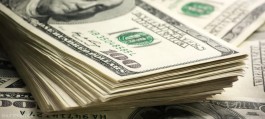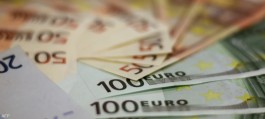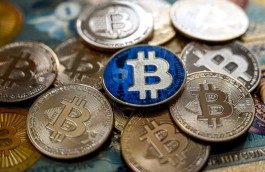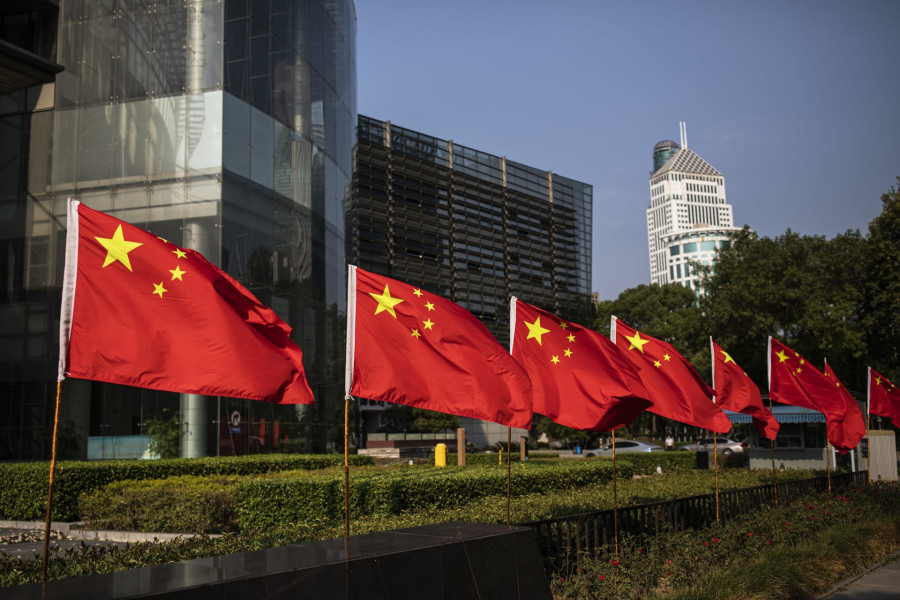Official data showed, on Wednesday, that the Chinese economy grew by 5.2 percent in the fourth quarter of 2023, compared to the same period of the previous year, a rate slightly slower than analysts’ expectations, but sufficient to achieve the government’s annual growth target.
Analysts had expected GDP growth to rebound from the third quarter's pace of 4.9 percent due to a series of stimulus measures, but they warned that more measures would likely be needed to put economic activity on a more sustainable path.
The second largest economy in the world is struggling to achieve a strong recovery after the Corona epidemic, but China’s economy is burdened by crises that are hindering its recovery:
- Real estate crisis: The decline of China's real estate sector, a major driver of the economy, is one of the biggest challenges. Declining sales and the accumulation of debt at real estate companies create uncertainty and affect investment and spending.
- Weak Consumer Confidence: Declining consumer confidence due to recession fears and unstable business conditions is impacting consumer spending, another driver of growth.
- Growing local government debt: Accumulating debt among local governments limits their ability to invest in infrastructure and other sectors, and puts pressure on public spending.
- Weak global growth: The slowdown in the global economy is putting additional pressure on China's exports and affecting overall economic activity
Recent data indicates that the economy begins 2024 on a shaky footing:
- Deflationary pressures persist due to the continued decline in inflation, and falling prices may lead to weak consumer and investment spending, hindering economic recovery.
- A slight improvement in exports is not enough: While export performance may have improved, its impact will not be enough to offset weak domestic demand.
- Weak bank lending in December: A decline in bank loans indicates a decline in the appetite of companies and individuals to invest and borrow, which hinders economic activity.
The head of China's National Bureau of Statistics said at a press conference in Beijing that China's growth in 2023 was achieved with difficulty, but added that the economy faces a complex external environment and insufficient demand in 2024.
Main data:
- GDP growth for 2023 +5.2 percent (versus target of around 5 percent)
- Q4 GDP +5.2% YoY (vs. estimate of +5.3%, Q3 +4.9%)
- Q4 GDP +1.0% QoQ, (expect 1%, revised Q3 +1.5%)
- December industrial production +6.8 percent y/y (expect +6.6 percent, November +6.6 percent)
- December retail sales +7.4 percent y/y (expect +8.0 percent, November +10.1 percent)
Disappointment and losses in the markets:
Chinese markets received with disappointment the economic growth data for the fourth quarter, which was lower than expectations:
- China's blue-chip CSI300 index fell more than 1 percent, approaching a five-year low.
- The Shanghai Composite Index fell 0.8 percent.
Sharp decline in Hong Kong:
Markets in Hong Kong suffered greater losses, with the Hang Sang Index falling by 3 percent, hitting its lowest level since November 2022. The real estate and technology sectors led the stock market selling.
For his part, Wei Chin Ho, an economist at UOB, in Singapore, said that the numbers for the full year were in line with expectations... but the December numbers were mixed. Overall, I think the data, especially from the real estate side, does not look good. Real estate sales weakened worse than November levels.
He continued: I think the markets were disappointed because they did not lower interest rates last Monday, but it seems that the Chinese government is considering more targeted measures to solve the real estate problem rather than broad cuts in interest rates.
Chinese economic forecasts
- China's economic growth is likely to slow to 4.6 percent in 2024, then decline further to 4.5 percent in 2025, a Reuters poll showed, increasing pressure on policymakers to roll out more stimulus measures amid deflationary pressures and a sharp decline in real estate.
- The People's Bank of China (the central bank) has pledged to increase stimulus policy support for the economy this year and boost price recovery.
- But the People's Bank of China faces a dilemma because loans directed to productive sectors grow more than consumption, which may increase deflationary pressures and reduce the effectiveness of its accommodative monetary policy tools.
- On Monday, the People's Bank of China kept the medium-term interest rate unchanged, defying market expectations for a cut as pressure on the yuan continued to limit the scope of monetary easing.
- Analysts polled by Reuters expected China's central bank to cut the one-year loan policy rate (LPR) - its key lending rate - by 10 basis points in the first quarter.
- The People's Bank of China may also cut reserve requirement ratios for banks in March and April if economic indicators continue to weaken, Wen Bin, chief economist at Minsheng Bank, said in a note.
- The Chinese government, which in October unveiled trillion yuan worth of sovereign bonds to finance investment projects, is likely to press ahead with more fiscal spending to drive growth, analysts said.






































